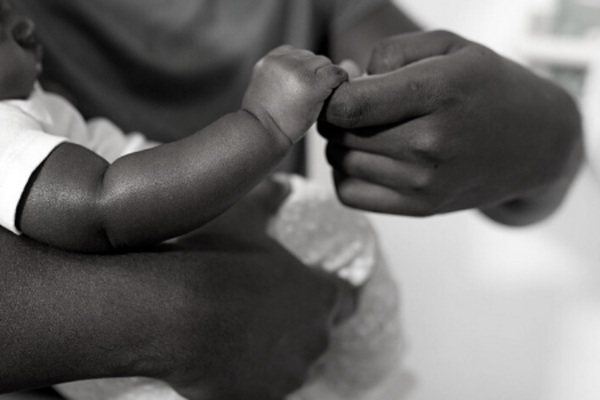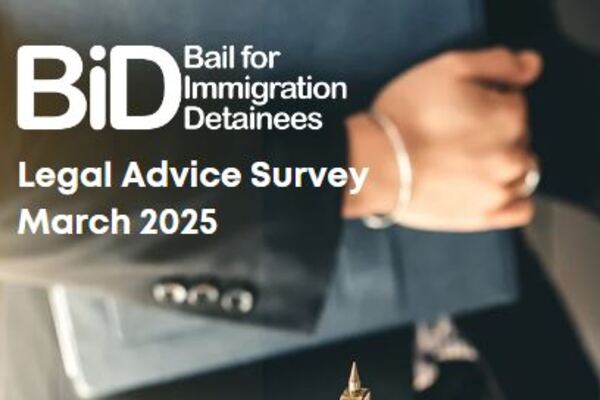UK families living with a member’s insecure immigration status and threat of deportation, face extreme and wide-ranging harm. According to new research, such families are likely to be poorer, sicker and unhappier, even when they include British citizens and children.
Two separate reports are being launched on 8 June: one by the Universities of Birmingham and Bristol, the other by Bail for Immigration Detainees. The reports call on policy- and decision-makers to recognise the impacts of the immigration system on UK families, including British children, and take steps to protect their human rights and ability to navigate the system more fairly.
Bail for Immigration Detainees report: Detention, deportation and separated families
New research carried out by Bail for Immigration Detainees examines the devastating impact of the deportation system from the perspective of those it affects, in particular the families it forces apart and the children made to grow up without a parent. The testimonies of the fathers researchers spoke to are powerful and often heart-breaking, and paint a picture of an entirely broken system that cannot be in the national interest.
The report highlights the families placed in extreme practical, financial and emotional hardship by extended periods of uncertainty under the constant threat that family life will be brought to a permanent end. Not only were the fathers we interviewed prevented from working, they faced repeated periods of detention that were traumatic for the entire family and placed an even greater practical burden on the mother. The mental health consequences of the ordeal were severe.
A particular focus was the devastating impact deportation has on children. In the interviews we carried out, fathers facing deportation reported their children developing anxiety; crying constantly; unable to let their dad out of their sight; withdrawing from everything; loss of appetite; difficulty sleeping; having nightmares; and in one particularly serious case self-harm and attempted suicide.
The research also examines the impact of the removal of legal aid and successive legislative changes that have made it much more difficult to challenge deportation. Interviewees explained the myriad interlocking barriers to justice they had been forced to confront.
University of Birmingham report: ‘Deportability and the Family’
Dr Melanie Griffiths, based in the University of Birmingham’s School of Geography, Earth and Environmental Sciences, is lead author of the second report. She said: “Insecure immigration status has significant and wide-ranging impacts on families, including family members with British citizenship. Children are especially harmed by separation from a parent through immigration policies, with serious damage to their wellbeing, education and feelings of Britishness. Such harm is regularly underplayed or ignored by decision-makers, with the Home Office allowing for what their own deportation policies call ‘cruelty’ to be committed to these UK families.”
‘Deportability and the Family’, argues that families in which there are individuals with insecure immigration status are faced with chronic insecurity, forced unemployment, long-term uncertainty and separation by immigration detention or deportation. British citizens are routinely advised by the government to choose between living separated across different countries or to leave the UK. They are often forced into debt, poverty or excessive workloads to compensate for their partner’s forced worklessness. All family members – including British citizens – experience harm to their physical and mental health, financial stability, relationships and identities.
British children facing the removal of a parent experience damage to their health, wellbeing, schooling and feelings of Britishness and belonging. They may experience regression of behaviour, such as bedwetting, attachment issues and psychological problems such as nightmares and fears of abandonment. Some of the older children even self-harmed and attempted suicide.
Many of these problems have been exacerbated by drastic changes to legal aid provision, immigration policy and the interpretation of Article 8 of the Human Rights Act, which is designed to protect an individual’s private and family life. Those with a criminal record find that their rights under Article 8 are especially undermined, despite overwheliming evidence showing that certain groups, such as poor and racialised men, are especially prone to being brought into the criminal justice system. Moreover, the immigration system itself actively undermines people’s relationships, making it even harder for people to have their right to remain together recognised through no fault of their own.
The research team worked with 30 mixed-immigration status families and couples consisting of British citizens and foreign national men. The report draws on qualitative research compiled over three years including interviews with the families and with practitioners working in the field, observations of immigration legal hearings and policy analysis.
Next steps:
These reports present a compelling case for an overhaul of the UK’s deportation system and the restoration of legal aid for immigration cases.
Annie Viswanathan, Director of BID said: “It cannot be right for the government to deport people who grew up in the UK to a country of which they have no memory. It cannot be in the public interest for children to be forced to endure the cruelty of forced separation from a parent, or for Parliament and the government to condone such treatment. Nor is it fair or just for the government to continue to prevent individuals and children from being able to access a fair hearing.”









